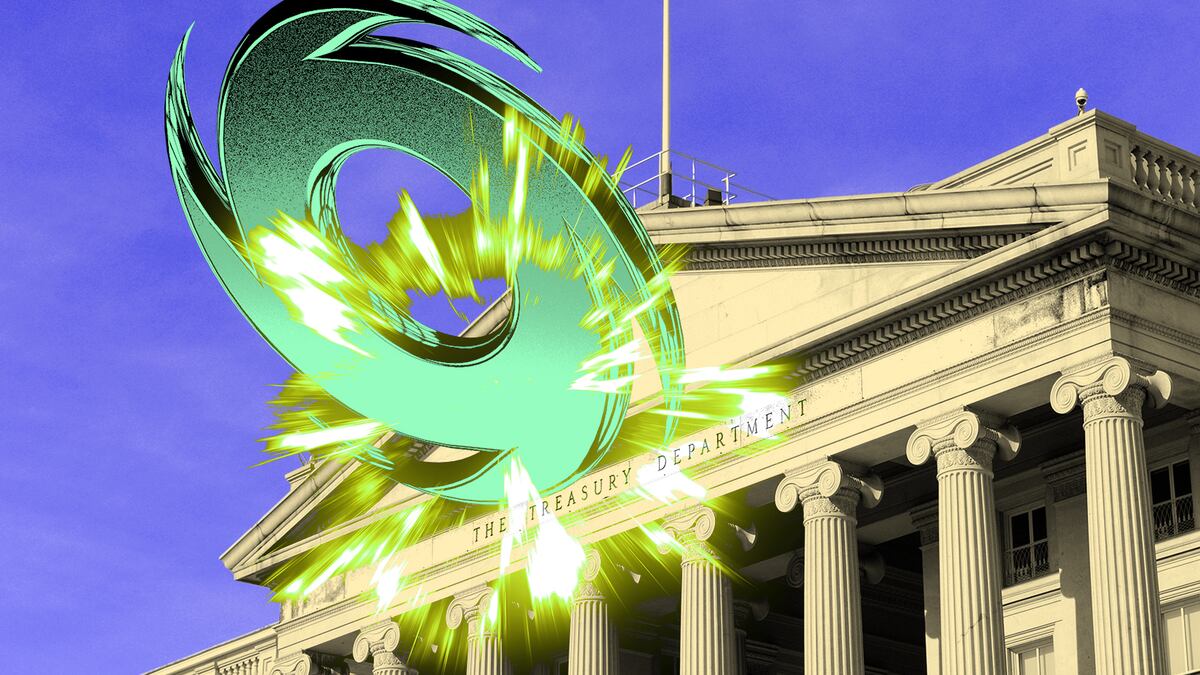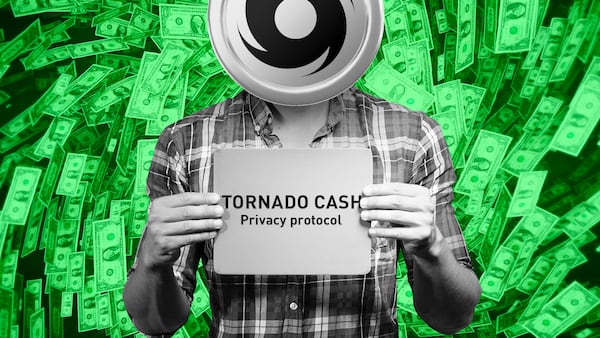- Crypto lawyers fret Treasury is leaving the door open to future sanctions.
- Tornado Cash deposits barely budged after the US removed sanctions.
- The aftermath of the case has left vexing questions.
It was an “incredible win” for privacy, for software developers, and freedom of speech.
Or was it?
The crypto industry celebrated when the US Treasury Department removed privacy protocol Tornado Cash from its list of sanctioned entities on March 21.
But now crypto lawyers tell DL News that a careful analysis of the Treasury Department’s actions raises some vexing questions.
“They lost, but they don’t want to say, ‘Yes, we lost,‘” Nathan Postillion, general counsel at Hadron Labs, told DL News.
Stinging defeat
There’s little doubt that the Treasury Department suffered a stinging legal defeat last year when a US appeals court ruled the department had overstepped.
Immutable software code — in this case, smart contracts — could not be sanctioned the same way as people or corporate entities, the court found.
The feds waved a white flag and declined to further appeal the November verdict.
And yet, the Treasury’s actions are weighing on crypto privacy advocates.
They want to see the feds acknowledge the appeals court was right to rule that software such as smart contracts is not covered by existing law.
More importantly, they want the original court that heard the case to issue what’s known as a summary judgment order. That would set a form of precedent and give crypto advocates comfort that the government won’t try to re-sanction Tornado Cash, or any other crypto mixer.
But Treasury is arguing the court shouldn’t do it.
Instead, the department on March 21 announced it had removed Tornado Cash at its own “discretion,” citing “novel legal and policy issues” raised by “evolving technology and legal environments.”
Translation: The court should drop the case now that the sanctions issue has been addressed.
But crypto lawyers are worried the government is trying to leave the door open for future action.
‘They’re all short term wins, but they might be long term losses if things turn around.’
— Joe Doll, Magic Eden
The plaintiffs — Ethereum core developer Preston Van Loon and five other Tornado Cash users — have asked the court to void the sanctions, and to declare them beyond the scope of the Treasury Department’s authority.
Failure to grant that request could give the government the opportunity to re-sanction Tornado Cash in the future, they argue.
It isn’t just Treasury that’s leaving legal loose ends on crypto actions, Joe Doll, general counsel at Magic Eden, told DL News.
It’s part of a larger trend, according to Doll. The Securities and Exchange Commission has dropped several pending lawsuits against crypto companies, citing its desire to rethink its approach to crypto regulation.
“Although they’re walking away,” he said, “they’re all short-term wins. But they might be long-term losses if things turn around.”
Steep odds
In 2022, the Office of Foreign Assets Control, or OFAC, sanctioned Tornado Cash for laundering $7 billion in cryptocurrencies since its inception three years earlier.
OFAC, a unit of the Treasury Department, said the mixer handled $455 million in crypto stolen by the Lazarus Group, the North Korea-backed hacking outfit that regularly loots crypto projects and helps fund the pariah nation’s nuclear weapons programme.
In September 2022, Van Loon and his co-plaintiffs sued the Treasury Department and OFAC, arguing that sanctioning a mere tool such as Tornado Cash was an unprecedented — and unconstitutional — overreach.
‘Without precedent, you leave open the door for this to come back.’
— Joe Doll, Magic Eden
From the get-go in this case, the plaintiffs faced steep odds.
The courts rarely, if ever, take sides against the government in national security cases.
In August 2023, a federal court in Austin, Texas, ruled in favour of the government, and the plaintiffs appealed.
Then last November, an appeals court in New Orleans found the lower court had been wrong to side with OFAC.
On the contrary, the three-judge panel said that the national security law cited to support the sanctions did not cover immutable, self-effectuating software programmes such as smart contracts, just people and corporate entities.
The opinion was a landmark for crypto privacy.
“Its significance cannot be overstated,” Presto, a crypto research firm, said in its daily market brief last month.
The sanctions “could have set a precedent of treating non-custodial software as a centralised entity, requiring licenses to operate in the US (which is impractical to comply with) and effectively banning DeFi apps.”
‘Enough is enough’
But the appeals court had found only that the lower court in Texas had erred. It directed the lower court to issue a judgment in line with its own findings.
Since then, the plaintiffs and the Treasury Department have been caught in a legal back-and-forth over how to meet the appellate judges’ demands.
After delisting Tornado Cash in March, the Treasury Department insisted no further action was necessary.
“Tornado Cash is no longer subject to sanctions by the Office of Foreign Assets Control, and this matter is now moot,” the Treasury Department told the Texas court.
The plaintiffs want Tornado Cash’s removal to become permanent — something that can’t happen without a court order, they argue.
“Enough is enough,” they wrote in a March 24 filing.
“This case is not moot, and the Court should not entertain the Department’s latest effort to avoid judgment,” they said, adding the Treasury Department has implied it would seek to re-sanction Tornado Cash in the future.
Doll said their concern is reasonable.
“That’s the real worry,” Doll told DL News. “Without [the court] making precedent, you leave open the door for this to come back around in a negative fashion.”
That’s especially true if appellate courts in other parts of the country hear similar cases regarding so-called crypto mixers like Tornado Cash and rule in the Treasury Department’s favor, according to Postillion.
“If you suddenly had a slew of cases against mixers that those mixers lose, you could have it come back,” he said.
That uncertainty appears to be weighing on Tornado Cash.
Crypto deposited in Tornado Cash fell by more than half after it was sanctioned in August 2022, according to DefiLlama data.
As of Friday, deposits were still 31% below their pre-sanction levels in Ether terms.
Aleks Gilbert is DL News’ New York-based DeFi Correspondent. You can reach him at aleks@dlnews.com.







